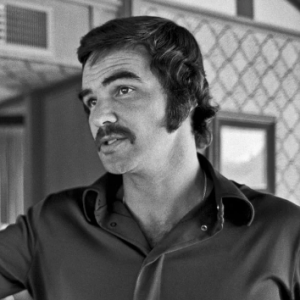God is good…
All the Time!
All the time…
God is Good!
A month back, I mentioned in worship that it was about time I preached on this refrain. I went so far as to suggest making it my final sermon on April 27th.
Well, that’s not happening.
First, I was struck with a different inspiration that I felt called to share on my final Sunday. Second, I couldn’t let go of the nagging feeling that I had ALREADY preached on that now familiar litany.
And, sure enough, I have. With a small amount of digging, I was able to find my sermon entitled “God is good…All the time?” from January 15, 2023. Here is a link to it if you’d like to watch that sermon. (Please, just be sure to ignore the post-covid quarantine calico goatee I was sporting which, on camera, strangely resembled an early 1970’s Burt Reynolds mustache.)
Anyway, back to the point at hand…
Since preaching on the theological quandary of whether God is good all the time was off the table, I thought I would focus my last blog on that instead. So here it goes.
The difficulty, of course, with stating that God is good all the time is that it can be hard to accept when things aren’t going well. In fact, some folks flat out reject the idea. They ask, “How can we declare that God is good at the same time that we see horrific things happening in the world, or are experiencing personal hardships in our own lives?” They just don’t see the two as compatible.
As Christians, we generally believe that God is omniscient, omnipotent, and omnipresent. In simplistic terms this means that God is all-knowing, all-powerful, and all-present. This leads to the logical argument that if God knows about our suffering, has the power to change it, and is present while it is happening, then how can we argue that God is good if we continue to keep on suffering?
If God is truly good all the time, wouldn’t a good God put an end to the suffering? Wouldn’t a good God change the circumstances that lead to our distress? Especially when that misery seems undeserved, widespread, or arbitrary? If God is truly good all the time, then why do bad things happen to good people?
This logic leads many people to believe that either God isn’t omniscient, omnipotent, and omnipresent, or quite simply, that God isn’t good. Taken to the extreme, these questions lead people to reject faith and God altogether.
Of course, the logical outlined above makes a few assumptions that are seldom addressed: namely that “good” is defined as “whatever benefits me (or someone else) best” and that we are able to clearly see and understand the depth and breadth of what is truly happening in any given circumstance.
The logic that a good God would not permit suffering assumes that we know what is good, or the greatest good, in any given circumstance. This is simply not the case.
What opened my heart to a different understanding is what I experienced in the summer of 1995.
 That summer I had the privilege of attending worship at an AME Zion congregation. That two-and-a-half-hour-long service impacted me in a number of ways. First was the idea that worship could last 2.5 hours and still be enjoyable. Second was the role of prayer and music in liturgy. And third was the idea that faith is often about perspective. This latter realization means that one’s faith often depends more on one’s perspective, than it does on God’s action or inaction.
That summer I had the privilege of attending worship at an AME Zion congregation. That two-and-a-half-hour-long service impacted me in a number of ways. First was the idea that worship could last 2.5 hours and still be enjoyable. Second was the role of prayer and music in liturgy. And third was the idea that faith is often about perspective. This latter realization means that one’s faith often depends more on one’s perspective, than it does on God’s action or inaction.
That service we first heard the call and refrain: “God is good…all the time…all the time…God is good.”
I later discovered that this saying had long been a tradition in the historically black church (which is the tradition that the AME Zion church is rooted in and continues to be a part of). That saying has a clear foundation in segregation, oppression, and slavery. It has been a refrain shared through ages of suffering.
If anyone has a right to complain about God’s goodness, it is those who have lived through generations of suffering and horrific abuses at the hands of others. And yet, it seemed that those who had suffered the most, and had the most to complain about, where the ones who found strength in the idea that God is good even when terrible things are happening to them and the world.
There is a power in a faith that can stand in the face of the direst oppression and still remain strong, believing that even although things look grim now, God and God’s goodness will ultimately prevail.
In fact, this is the Easter message. This is the point of the resurrection. This is the experience of  Paschal Mystery1. This is Christianity: that even in the darkest of times we have faith that God, and good, will triumph in the end.
Paschal Mystery1. This is Christianity: that even in the darkest of times we have faith that God, and good, will triumph in the end.
This is why I begin every service with “God is good…”. Not because I believe in some Pollyanna where life is wonderful all the time, but rather because I want to remind myself (and you) that even on those days, perhaps especially on those days, when life doesn’t feel wonderful, the promise remains that God will ultimately succeed, and we will overcome.
This faith is a gift. The author of Hebrews writes, “Faith is the assurance of things hoped for, the conviction of things not seen.”2 The belief that goodness will ultimately win, or that God has already won and people just don’t realize it yet, is a powerful idea. It gives us the strength to carry on when we want to quit. It reminds us that all we do makes a difference, even if we cannot see it now. And it challenges us to live into the vision of what we believe, a vision of love, equality, righteousness, and goodness.
It can be so hard to accept that God is good all the time, especially when we are hurt or hurting. But doing so reminds us that God’s goodness, God’s state of being, isn’t dependent on us and our happiness, but rather transcends it. God isn’t good because we are happy, rather we can be happy because God is good!
1 The Paschal Mystery refers to the events over three days of the suffering, death, and resurrection of Jesus, and the promise they hold offer on the redemption and salvation of humanity.
2 Hebrews 11:1 (NRSV)



